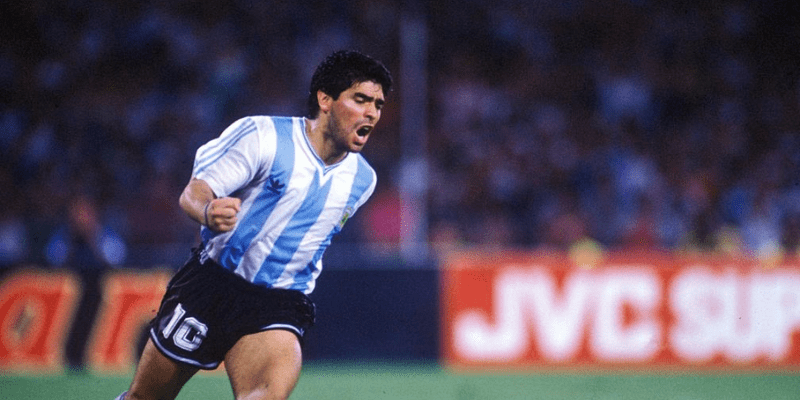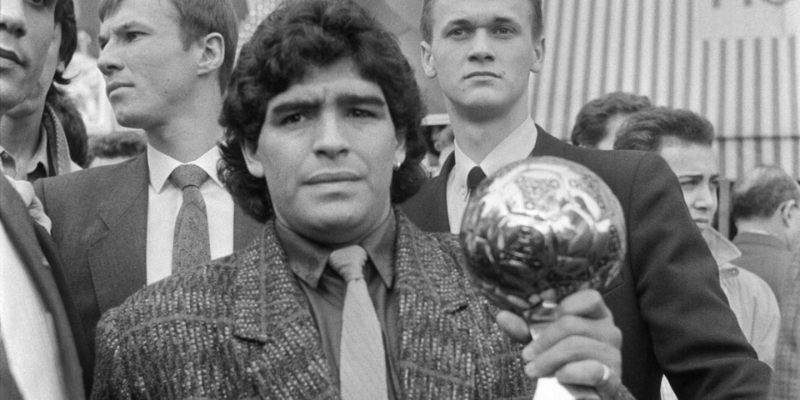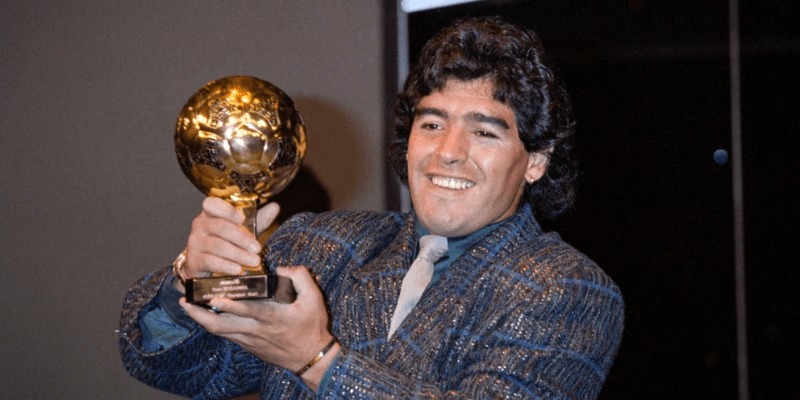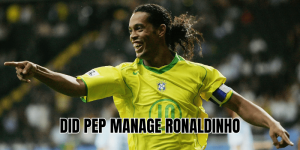Football fans often ask: has Maradona won a Ballon d’Or? After all, Diego Armando Maradona is widely regarded as one of the greatest players in history, a genius who inspired Argentina to World Cup glory and redefined Napoli’s place in European football. And yet, when it comes to the most prestigious individual award in the sport, his name is curiously absent, ZaneyStrike will guide you through the fascinating story of why Maradona never officially received the Ballon d’Or, despite a career that lit up the game.
Why Maradona never won the Ballon d’Or

The Ballon d’Or was established in 1956 by France Football magazine, originally intended to reward the best European player playing in Europe. That key detail is crucial. Until 1995, only European-born players were eligible to win the award, automatically excluding footballers.
This meant that players like Maradona and Pelé, two of the sport’s brightest icons, were denied the recognition they would almost certainly have received. Maradona’s peak years in the 1980s – including his 1986 World Cup triumph with Argentina and his extraordinary spell at Napoli – coincided with a period when the rules were stacked against him.
Maradona’s golden years and missed opportunities
Looking at Maradona’s career highlights, it becomes obvious that he was robbed of multiple potential Ballon d’Or wins.
- 1986: Maradona almost single-handedly dragged Argentina to World Cup victory in Mexico. His “Goal of the Century” against England and the infamous “Hand of God” symbolized his genius and controversy. Any European player achieving that would have been a certain Ballon d’Or winner.
- 1987: He led Napoli to their first-ever Serie A title, a feat so monumental it transformed the club’s history and elevated him to godlike status in Naples.
- 1989: Maradona captured the UEFA Cup with Napoli, proving his dominance extended beyond domestic competitions.
- 1990: Another World Cup final appearance with Argentina, though they lost to West Germany.
During these years, winners included Michel Platini, Marco van Basten, Ruud Gullit, and Lothar Matthäus – all brilliant players, but none carried the mythic aura that Maradona embodied. If eligibility rules had been different, Diego might have lifted the trophy multiple times.
The honorary Ballon d’Or

In 1995, the rules changed to allow non-European players in European clubs to compete. That same year, George Weah of Liberia became the first non-European winner. Recognizing past injustice, France Football awarded Pelé and Maradona honorary Ballon d’Or trophies in 1995.
For Maradona, this gesture was symbolic acknowledgment of what the football world already knew: he was a Ballon d’Or-caliber player, perhaps above the award itself. Yet, it still leaves fans wondering what the official record might have looked like if the rules had been fairer.
Comparing Maradona to Ballon d’Or winners
To truly understand Maradona’s legacy, it’s helpful to compare him with the players who did win the Ballon d’Or during his peak.
- Michel Platini (1983–1985): Dominant with Juventus and France, but his reign directly preceded Maradona’s explosion.
- Ruud Gullit (1987): Won during Maradona’s Napoli triumph – had the rules been open, the award may have been Diego’s.
- Marco van Basten (1988, 1989, 1992): A lethal striker, but Maradona’s all-round influence often outshone pure goalscoring.
- Lothar Matthäus (1990): Recognized after captaining West Germany to World Cup victory, while Maradona carried Argentina to the final on grit and genius.
Comparisons reveal that Maradona not only matched but often surpassed these champions in terms of cultural impact, artistry, and match-winning influence.
The impact on his legacy

Some argue that the absence of official Ballon d’Or titles diminishes Maradona’s resume compared to modern greats like Lionel Messi or Cristiano Ronaldo, who dominate the award’s history. However, football is about more than trophies and statistics.
Maradona’s legacy is defined by his artistry, unpredictability, and ability to electrify millions. His name stands alongside Messi, Ronaldo, Pelé, and Cruyff in conversations about the greatest ever. In fact, his lack of Ballon d’Or titles often sparks debate about the fairness of football’s awards system, giving his legend an even more rebellious and mythical edge.
Conclusion
So, has Maradona won a Ballon d’Or? Officially, no – because of outdated eligibility rules that excluded non-European players. Yet in 1995, he received an honorary Ballon d’Or, a symbolic recognition of his unmatched influence on the sport. For many fans, Maradona didn’t need a trophy to prove his greatness; his goals, dribbles, and leadership defined an era.
At ZaneyStrike, we believe the question itself highlights how awards sometimes fail to capture true genius. Diego Maradona’s legend shines brighter than any golden ball, and his story continues to inspire new generations of football lovers. Stay tuned with us for more deep dives into football history, player biographies, and the fascinating tales behind the world’s greatest game.






